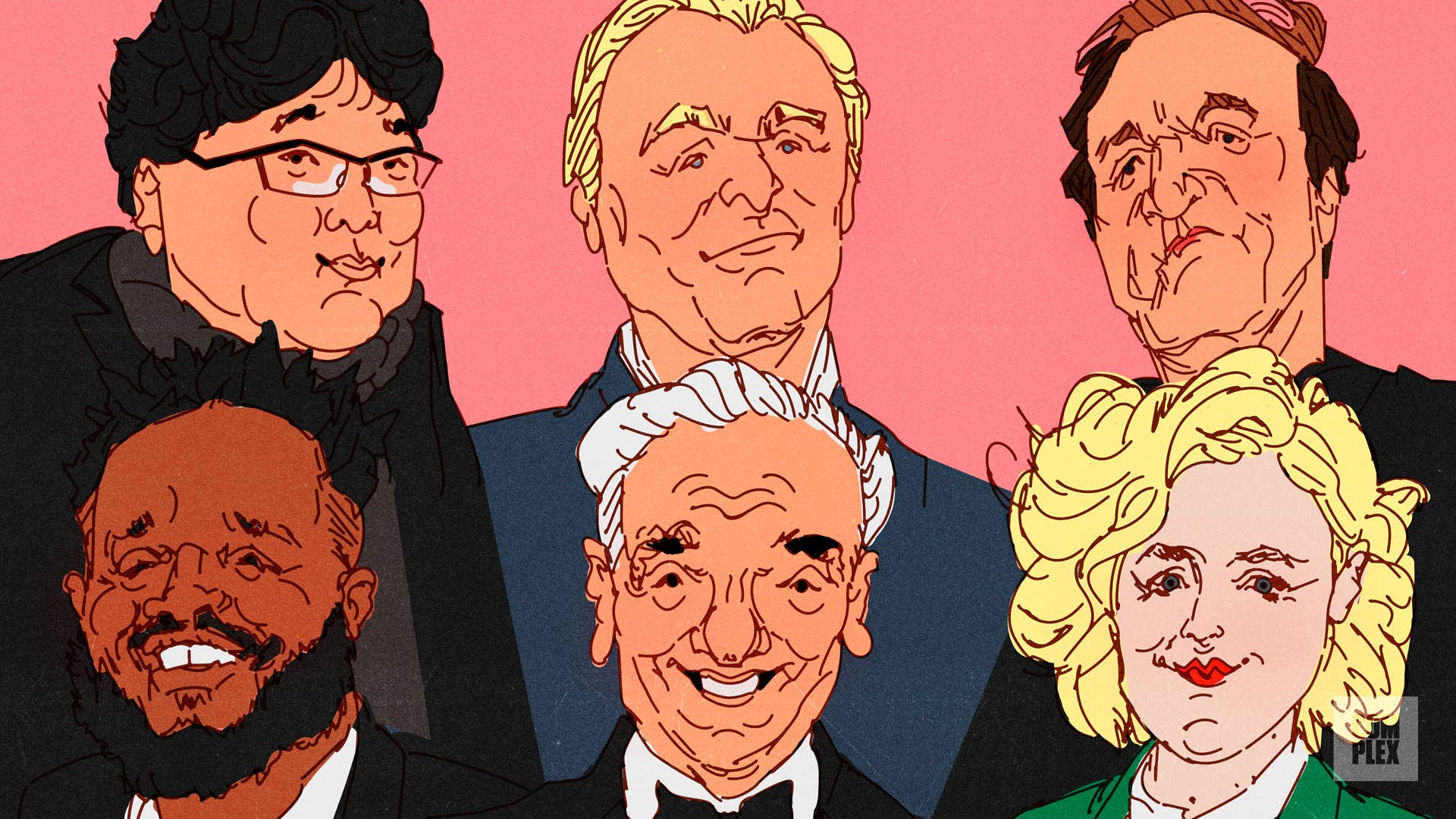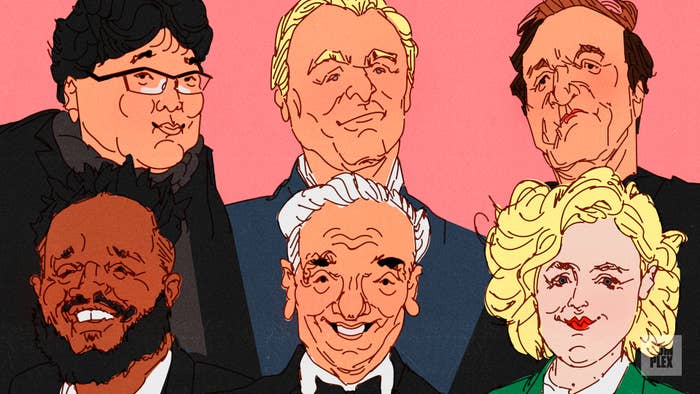
Image via Complex/Sho Hanafusa
If the idea of the movie star is all but dead in today’s cinemas, then who runs the (movie) world? Why, it’s directors, of course. A guy like Chris Pratt might not turn the needle when it comes to getting asses in seats, but there’s a certain excitement when you mention that an auteur like Jordan Peele or certified home run hitters like the Russo Brothers are attached to a project. That director’s eye can shovel heaps of attention onto an upcoming movie, giving theatergoers more of a glimpse of what a film could be more so than any of today’s current crop of actors (no shade to the legends and undeniable draws to the box office, what few we have left).
With so many associations giving away so many awards in a calendar year, it can be hard to determine who’s actually doing it, though. Which directors are consistently elevating the art form? Who is able to not just draw out God-level performances from their talent, but find innovative ways to deliver cinematic excellence on a regular basis? Who’s your favorite director’s favorite director? The always watching Complex PC squadron put our collective heads together to bring you our picks for the best individuals sitting in the director’s chair. For those at home keeping score, the main criteria for this list specifically looked at directors who have been active in the last five years and had 2+ films to their name.
From new schoolers who are elevating the superhero game to the war-tested vets who are still adding acclaimed material to their legacy, these are our picks for the best directors making movies right now.
Paul Thomas Anderson

Years active: 1988-present
Notable films: The Master, Inherent Vice, Phantom Thread
Truth be told, Paul Thomas Anderson has been a gem since the late ‘90s; not too many filmmakers can say they dropped a nugget like 1997’s porn chic-classic Boogie Nights then followed it up the Tom Cruise-led ensemble piece of Magnolia (1999). He even gave Adam Sandler one of his few pre-Uncut Gems classics, 2002’s Punch-Drunk Love. Anderson has a knack for crafting challenging looks at broken people, with impressive camera work and musical scores and selections that result in some of the most memorable visual experiences moviegoers have seen, and seen again.
His impressive streak has continued over the last 10 years; everyone’s favorite thespian Joaquin Phoenix continued his arguably-unbroken streak of stellar films with two coming from the mind of Anderson, 2012’s The Master and 2014’s Inherent Vice. The real clincher for the best to ever do it (right now) is 2017’s Phantom Thread, which became the perfect swan song for Daniel Day-Lewis as a dressmaker who found his muse. The film not only won Best Costume Design at the 90th Academy Awards, but also received nominations for Best Director, Best Actor, Best Supporting Actress, and Best Original Score. A true cinematic masterpiece, and highlights that after already churning out truly excellent cinema, Anderson still has that fire to continue creating some of today’s finest works for the silver screen. —khal
Park Chan-wook

Years active: 1992-present
Notable films: Oldboy, Thirst, The Handmaiden
With Bong Joon-Ho’s outstanding Hitchcockian flick Parasite damn near sweeping the 92nd Oscars, 2019 may be the time we come to cite as the year South Korean cinema officially “arrived” on mainstream American shores. Those of us up on game know Hallyuwood has been holding its own against its western counterpart for decades now, and in terms of thrillers, arguably eclipsing it. No director holds more responsibility for this than the world-reigning king of thrill, Park Chan-wook.
Like many westerners, my introduction to South Korean thrillers came via PCW’s tour de force Oldboy (2003). The in-your-face camerawork, fuck-you-honesty of the character development, and truly beautiful heart at the story’s center, was like nothing Hollywood had ever shown me. I was hooked. Quickly devouring every SK thriller Blockbuster had to offer, I did the only thing a 14-year-old kid could in the time before torrents—begged my mother to take my white ass to Little Korea in Palisades Park, NJ and scoured through racks of DVDs happily forking over every penny I had.
More than 100 movies later I still found myself gravitating back to PCW’s catalog—among a library of South Korean films, Park’s work stood out, while continuing to outclass anything western studios had to offer. That is until Stoker (2013). PCW’s American debut tells the story of a withdrawn girl and her emotionally disturbed mother becoming infatuated with the girl’s mysterious uncle following the death of the father. Any reservations I had about Hollywood squeezing the magic out of Park’s work like it had done to so many foreign directors before was silenced just seconds in by India Stoker’s (Mia Wasikowska) deafening whisper. Once again Park used every skill at his disposal to bring us to the most captivating and outright terrifying landscape of the film: his characters’ minds. The more I re-watched it the more I began to appreciate his skillset, a skillset which hadn’t been seen since the master of suspense himself, the GOAT Alfred Hitchcock.
Park’s ability to wring tension out of every facet of his films culminated in the 2016 period thriller The Handmaiden. Set in early 20th century Korea, a conman devises a plan to trick a Japanese heiress out of her inheritance. Both shadow-play and lighting evoke the same gothic dread as Hitchcock’s Rebecca (1940), while the wide array of costumes and colors used to express characters’ traits and mindsets immediately draws comparison to Rear Window (1954) or Vertigo (1958). The only fault that touches this insta-classic is the fact not enough people saw it.
Stream, rent, buy, do whatever you have to in order to right this wrong. Park Chan-wook not only deserves to be watched by a wider audience but by a world of filmmakers. They can undoubtedly learn as much from this modern master as he did from the masters of the past. Film will be better for it. —Nate Houston
Coen brothers
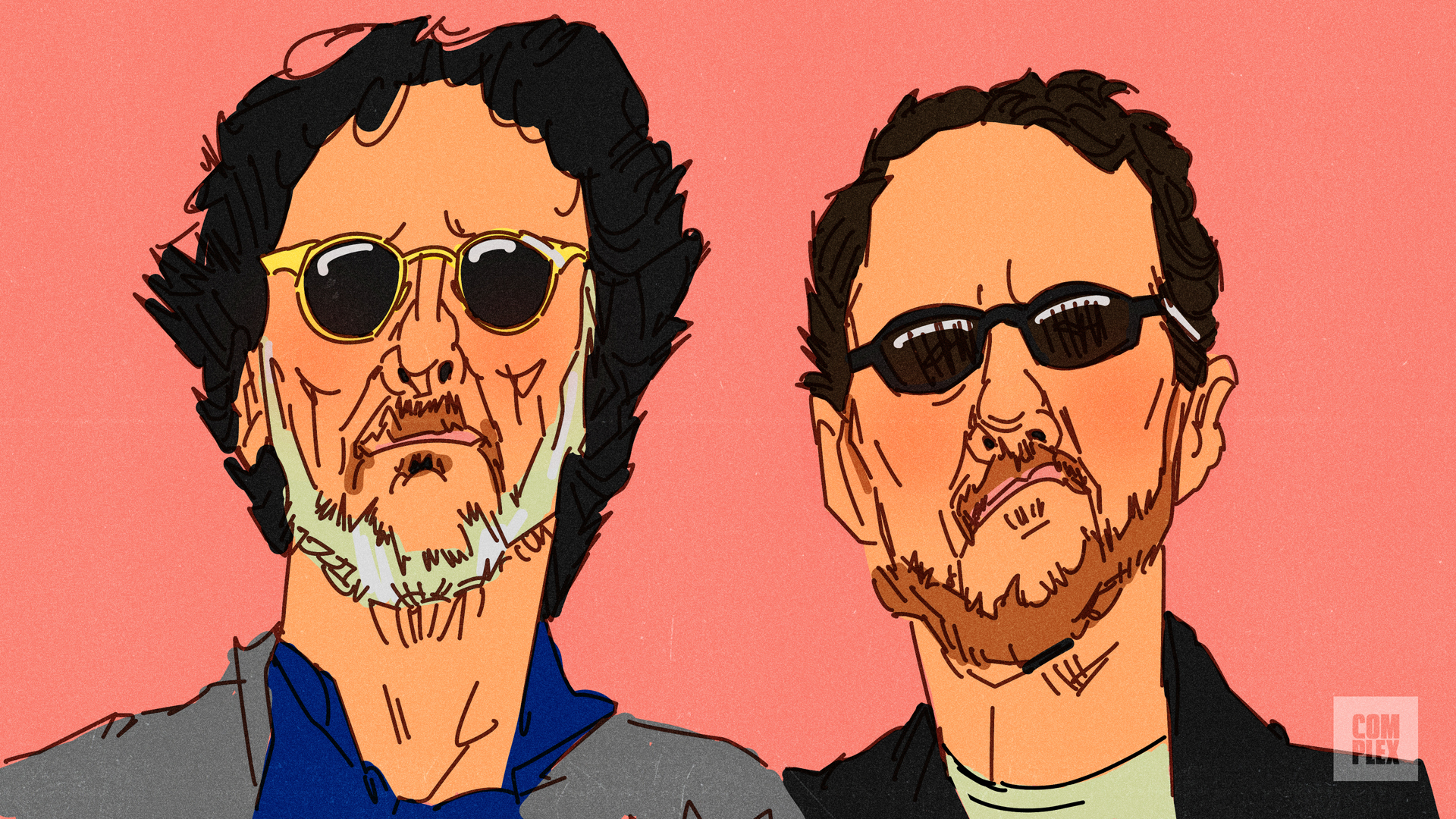
Years active: 1984-present
Notable films: No Country for Old Men, Inside Llewyn Davis, The Ballad of Buster Scruggs
If you wanted to make the case that the Coens are the best American filmmakers of the last 30+ years, you could do it handily. Miller’s Crossing, Barton Fink, Fargo, The Big Lebowski, No Country for Old Men, A Serious Man—their body of work is a singular traipse through different genres and moods, and the highlights are unimpeachable.
Shifting the focus to the last ten years perhaps makes the argument for their place on this list slightly trickier, but even then an underappreciated gem with the omnibus Netflix release The Ballad of Buster Scruggs and a true masterpiece with Inside Llewyn Davis. (True Grit and Hail, Caesar! are frequently inspired but don’t feel essential—though the screwball sensibility of the latter, a send-up of commie-paranoid Hollywood in the ‘50s, is a crucial part of the Coens’ personality, albeit one better expressed in, say, Raising Arizona.)
Set amongst the folk scene of New York, circa 1961, Inside Llewyn Davis is a sobering depiction of not being good enough, of failure, of self-sabotage. It’s darkly funny, but the lingering taste is bitter and disquieting—it might be the most devastating movie in the Coens filmography. Llewyn Davis (played by Oscar Isaac with real anger and impatience) is a folk singer stuck on the edge of a scene that is about to become very fertile artistic ground for some, to say nothing of the financial possibilities. No doubt he’s talented, but he’s uncompromising and without any flair for self-preservation—he pisses off everyone around him. He’s caught in a trap and besides singing and songwriting, his talent is making that trap work him harder; the ingenious script is a sort of puzzle too, a dismal loop that appears to offer no escape. Inside Llewyn Davis is a mature later-period work that casts a cold eye on big questions about market value and if change is possible; it makes you almost apprehensive about where they could drive your feelings in this new decade. —Ross Scarano
Ryan Coogler
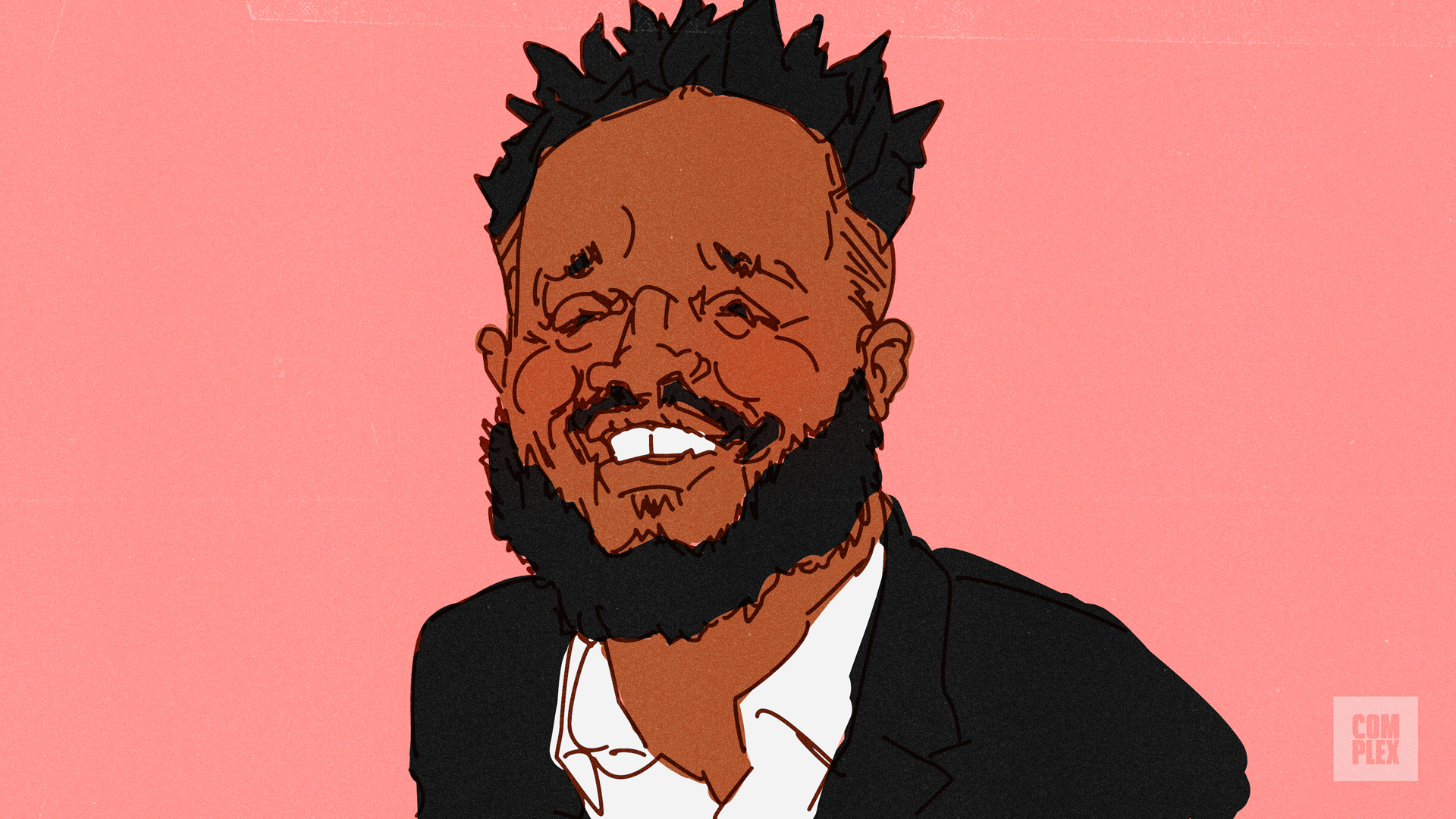
Years active: 2009-present
Notable films: Fruitvale Station, Creed, Black Panther
What can’t Ryan Coogler do? He brought pathos and passion back to the Rocky saga. He stood at the intersection of expectation and the burden of representation and delivered a billion-dollar black superhero, bringing arthouse flair and Academy Awards to the MCU in the process. And he still only has three feature films to his name. The progression of Cooger’s filmography is the stuff film school dreams are made of. Acclaimed indie. Mid-tier mainstream crowd-pleaser. Blockbuster. From the raw character-study that documented Oscar Grant’s last day to pop culture’s formal introduction to Wakanda, with the franchise-reviving Creed in between them, Coogler took the last half of the 2010s by storm as one of the most exciting new starters to take the field. Across an indie tragedy, sports drama, and superhero spectacle, the common denominator in his movies—aside from Michael B. Jordan—is his ability to ground and distill each story regardless of genre to the purest, most relatable of human emotions. Even across dizzying boxing scenes and futuristic cities, the earnestness of his debut Fruitvale Station persists in his narratives. Creed, Black Panther: supermen on the surface, men battling a lifetime of Daddy issues deep down. And crucially, in Coogler’s hands, no theme is heady enough to wallow in self-seriousness, even a tale as dark as Oscar’s. In-person, Coogler is shy and reserved but his films crackle with wit and charm, subverting a joylessness many of his peers would fall victim to at every turn.
It speaks to Coogler’s great talent that the confirmation that he is indeed returning for 2022’s Black Panther II garners both relief and wariness. His mark is so indelible that no one wants to see the property in anyone else’s hands. And yet his talent is so limitless, it’d be a shame to see it swallowed up in the studio system. —Frazier Tharpe
Alfonso Cuarón
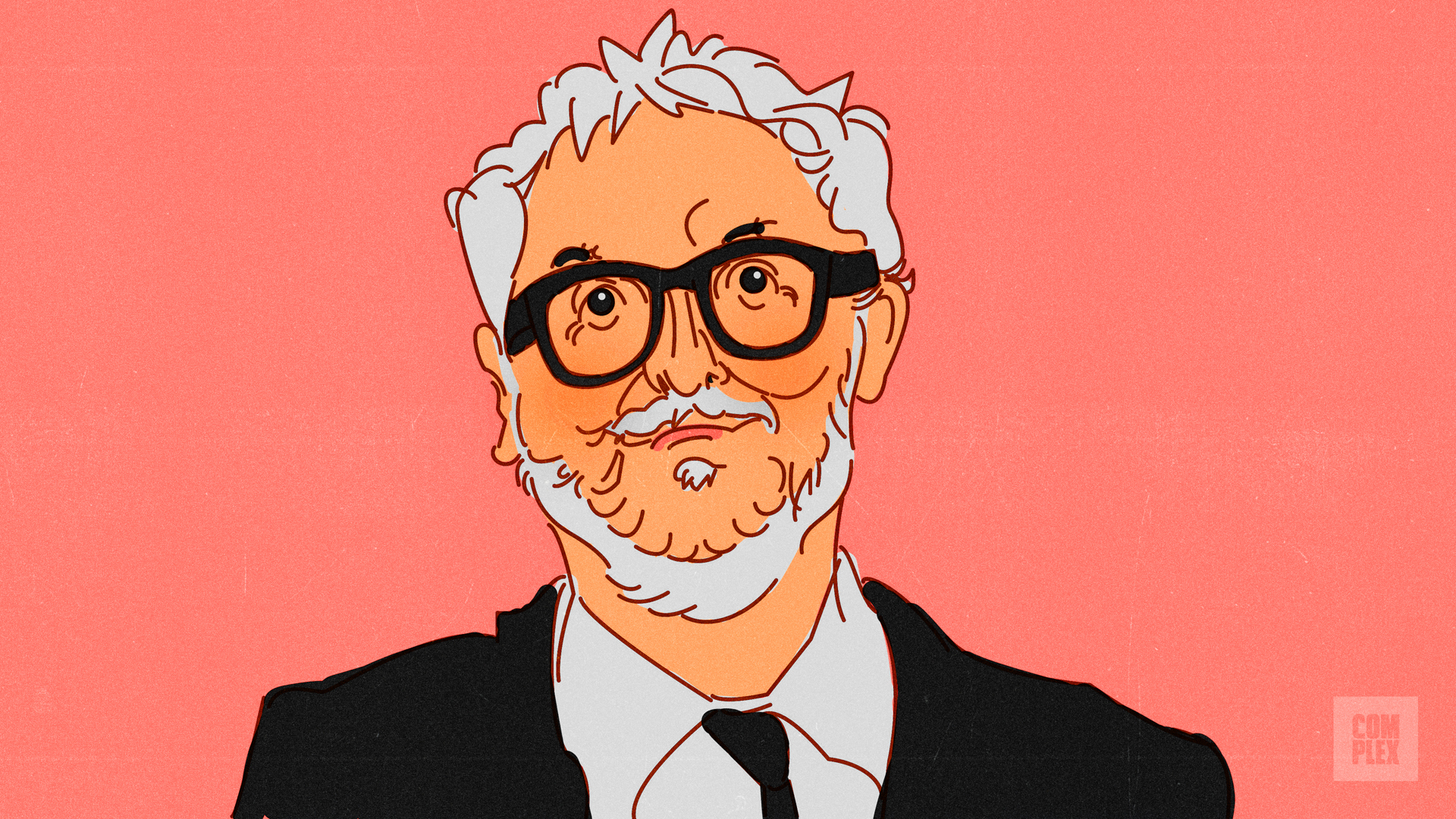
Years active: 1981-present
Notable films: Y Tu Mamá También, Gravity, Roma
If Alfonso Cuarón is only remembered for one thing, it would be that he helped Netflix fully realize its film award dreams. One of the few directors on this list to win two Best Director Oscars in the last decade (one in 2013 for Gravity, the second for 2018’s Roma—making him the first Latin American director to win this award), Cuarón’s semi-autobiographical Roma was the epic Netflix film that could. Set in the early 1970s, the film (told boldly in black-and-white) followed the maid of a middle-class family at that time. Dripping in symbolism, Roma captured an intriguing time in Mexico, both socially and politically, and was an easy favorite that year during the Academy Awards, also winning the Oscars for Best Foreign Language Film as well as Best Cinematography. It was the feather in the cap of Netflix’s AWARD SZN fit, highlighting that when they come to get their Oscars, they are actually able to roll with the veteran production houses.
Keep in mind, Cuarón did roughly the same thing five years earlier with the Sandra Bullock and George Clooney-led Gravity, and had been a critical darling in the States for 2001’s Y Tu Mamá También. That isn’t to mention that mans also helmed what’s arguably one of the best Harry Potter films in the franchise, 2004’s Harry Potter and the Prisoner of Azkaban. We stan a multifaceted director. —khal
Guillermo del Toro

Years active: 1985-present
Notable films: Hellboy, Pan's Labyrinth, The Shape Of Water
One of the most depressing articles on Wikipedia is “Guillermo del Toro’s unrealized projects.” Few filmmakers have worked harder on movies that never came to fruition. And the Mexican special effects make-up artist-turned-director has probably spent thousands of hours spent scripting and conceptualizing unfilmed adaptations, sequels and intriguing originals like The Bloody Benders, 3993, and the stop-motion animated film Born. But it’s not for lack of vision or follow-through: when Guillermo del Toro does make a movie, viewers are treated to a strange and beautiful world they’ve never seen before.
When a personal film finds its way from Guillermo del Toro’s pen to the cineplex, he melds horror and emotional stories of romance and family into deeply original work like 2015’s underrated Crimson Peak and 2017’s The Shape of Water, the monster movie with a heart for which he won Best Picture and Best Director at the 90th Academy Awards. And when del Toro lends his eye-popping visual sensibility to someone else’s concept, he blends digital animation and more traditional in-camera effects for a visual feast even in more conventional popcorn movies like Pacific Rim, Blade II, and the first two Hellboy movies.
If Guillermo del Toro is the Tim Burton of his time, he’s managed not to get lost in the sauce of bigger budgets and more generic CGI, taking on older and more familiar intellectual property like Burton has in the last two decades. Del Toro’s next project, a 2021 stop-motion version of Pinocchio, seems like the kind of movie Tim Burton would swing and miss with, but del Toro is at the peak of his career, coming off the success of The Shape of Water. And even when del Toro walks away from a project, it’s probably for the best: the Hobbit trilogy and last year’s third Hellboy movie probably would’ve been better if he stayed in the director’s chair, but the movies we got instead were worth the wait. —Al Shipley
Claire Denis

Years active: 1988-present
Notable films: Chocolat, Let the Sunshine In, High Life
There are few filmmakers on the level of Claire Denis working today. The daring French director creates viscerally felt films with sensual details, raw emotions, and often uncomfortable truths about human nature. Her latest, High Life, which was released last year, finds Robert Pattinson alone in space with his baby daughter after an inmate experiment gone wrong led by a mad doctor (Juliette Binoche). This bizarre sci-fi film confronts the concept of consent and freedom, and redefines the sheer terror of open space. It’s decidedly different from her film the year previous: Let the Sunshine In, a romantic drama about one woman’s failed relationship after another (starring Binoche again). Though it may initially feel un-Denis-like, it eventually finds its auteur rooting through a nihilist streak and the invitation for unfiltered sentimentality. Though Denis’s style is often enigmatic, she doesn’t let you just sit there and be a passive viewer. Whether she’s shooting extreme violence (as in her contentious 2003 cannibal horror Trouble Every Day) or utmost tenderness (such as the 2002 romance film Friday Night), Denis does it with a nauseating subjectivity. And that’s what makes her so brilliant: Whether her films are for you or not, it’s impossible to shake her. —Kristen Yoonsoo Kim
Greta Gerwig

Years active: 2006-present
Notable films: Lady Bird, Little Women
Before Greta Gerwig directed her first film, she heard through her agent that Amy Pascal, at Sony, was holding meetings about a new adaptation of Little Women, a book Gerwig had heard before she ever read it, when her mother read it out loud. An acclaimed fixture of American indies for her funny, unabashed work as an actor, Gerwig had numerous co-writing credits at this point, too, including Frances Ha—a significant precursor to her own body of work as a filmmaker—and a co-directing credit alongside Joe Swanberg on the 2008 microbudget long-distance-relationship comedy Nights and Weekends. But, as her agent told her, “No studio is going to hire you to direct a film when you haven’t directed a film.” To which Gerwig responded, "That’s semantics."
It sounds a bit like Jo March negotiating plot contrivances and royalties with her publisher in the film Gerwig eventually made. Which is to say the 36-year-old brings her idiosyncrasies and interests to her films, whether in an adaptation of a beloved classic, or an entirely original work, as was the case with her 2017 Oscar-nominated directorial debut, Lady Bird. (She wrote her script for Little Women—and had her meeting—before Lady Bird.) “I had this very clear idea [for Louisa May Alcott’s novel]. To me, it was so clear that the book was about women, art, and money.”
Not just money, but financial precarity—it’s a driving force not just in her work as a director but her screenplays too, especially Frances Ha and Mistress America. Anxiety around money is transmitted across generations, from mother to daughter, in Lady Bird, a sharp and funny coming-of-age story set in Sacramento in the early 2000s. The invasion of Iraq and 9/11 hover in the background, sometimes humorously, as in Lady Bird’s line about having a better shot at getting into a New York college because of terrorist-attack worries. Her mother and father are barely subsisting and Lady Bird lies about where she lives to a new rich friend; early in the movie, her mother pressures her to dress a certain way lest they convey a tattered, broken image to her wealthy classmates—and, more importantly, their CEO parents.
The film ends with Lady Bird matriculating at NYU in 2003, reaching the East Coast from dismal Sacramento thanks to loans and the refinanced family home; she will graduate in time for the recession. The film doesn't make this foreshadowing explicit, the way it amusingly does with her ex’s line about cell phones and government surveillance, but it doesn't need to. The film ends on an abrupt cut to black, a jagged edge.
Little Women is written and directed with even more confidence and lift—Gerwig takes Alcott’s linear plot and breaks it into two pieces, which she then braids together to brilliant effect, cutting between the warm past and cool present. Its ending is especially bold, taking a meta approach that forces the viewer to reckon with marriage and money and happiness, undercutting its pleasures even as it pleases. This pointedness is but one of Gerwig’s many gifts. —Ross Scarano
Barry Jenkins
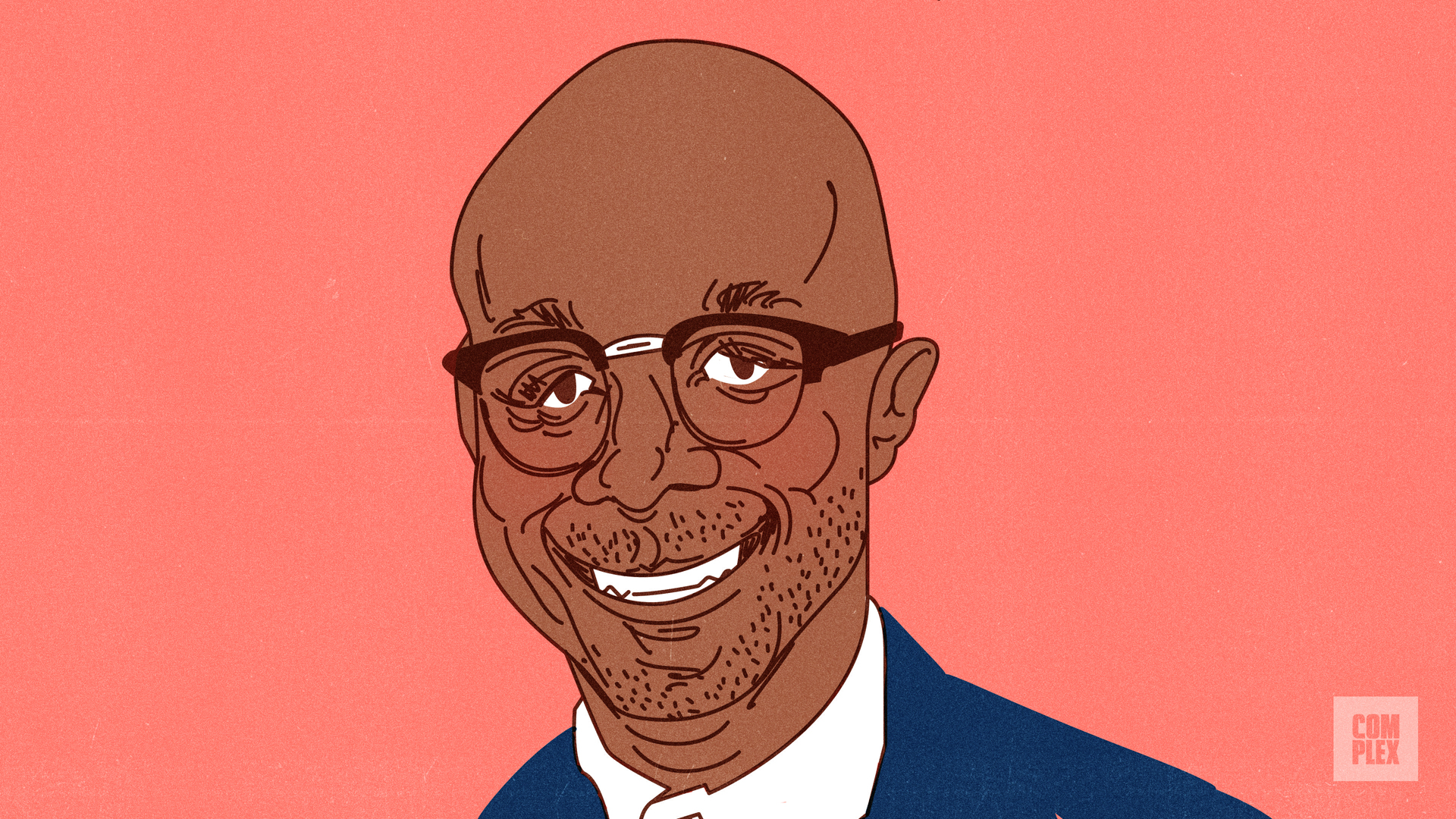
Years active: 2003-present
Notable films: Moonlight, If Beale Street Could Talk
Back in February of 2017, Barry Jenkins became only the second black person to direct a film that won the Oscar for Best Picture; that stat is amazing, but it’s more remembered for the confusion surrounding the actual win. Which sucks, but shouldn’t take away from the fact that Moonlight, a film about a black boy told during three stages of his life, highlighting his coming of age and sexual awakening; Barry Jenkins did that.
The film not only showcased how impressive of an actor Mahershala Ali was, but also proved one thing that I’d sang and known all my life, but most people (especially in the mainstream) weren’t able to properly see: that black truly is beautiful. It’s been said that color film wasn’t made for black skin, so for Jenkins to turn this film that highlights the hidden beauty of black folk by literally amplifying our skin’s tones in various stages of light? He deserved all of the awards for that alone. The fact that he then followed that film up with an adaptation of James Baldwin’s If Beale Street Could Talk, at a time when the issues of black lives mattering and the need for criminal justice reform were oh-so prevalent in today’s world—and put a queen like Regina King in line to snatch up all of the awards that season—is a testament to how impactful of a director he truly is.
With only a pair of acclaimed films under his belt, Jenkins has earned the right to be at the front of the “directors to watch” list, and deservedly so. —khal
Rian Johnson
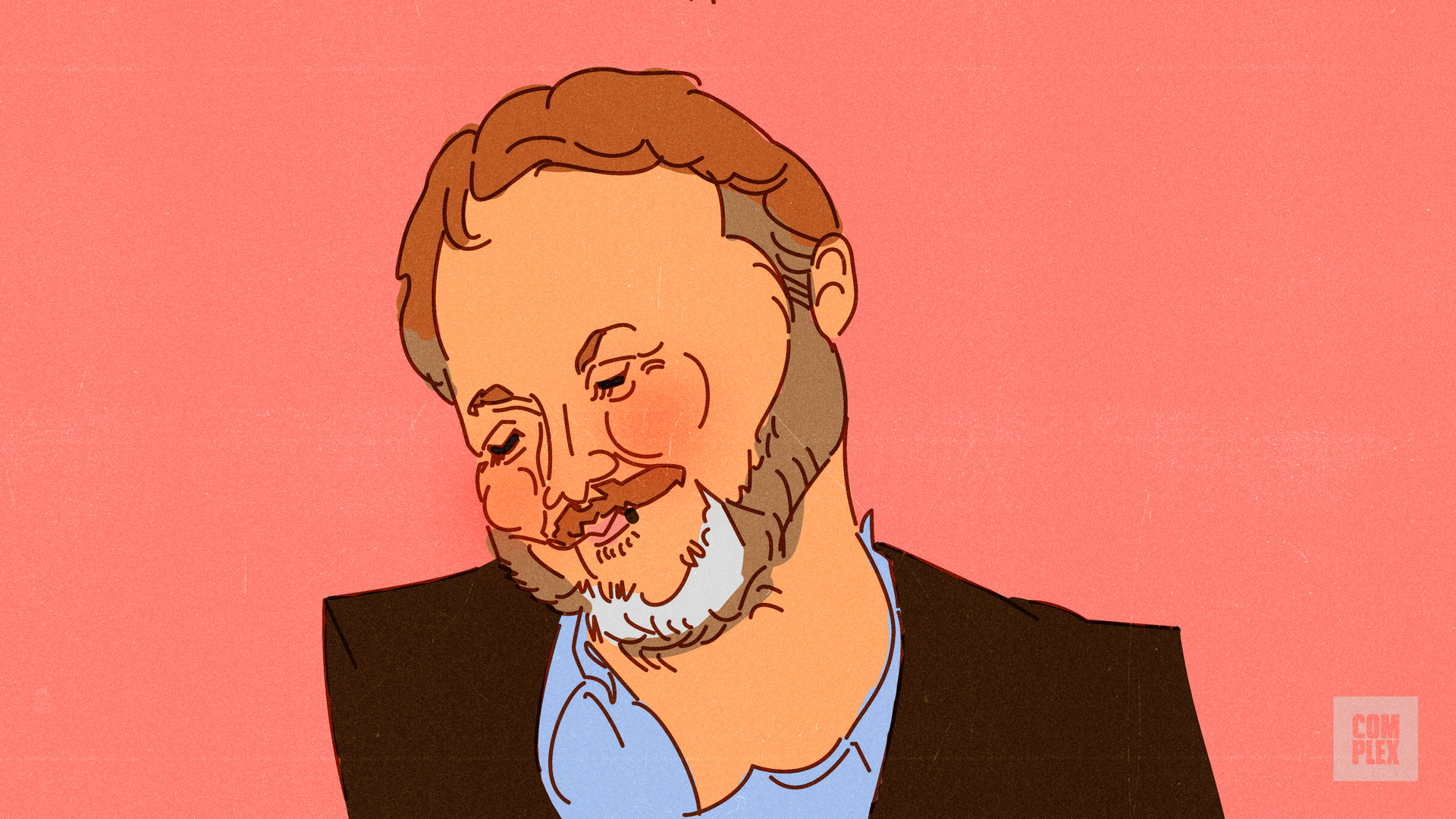
Years active: 1995-present
Notable films: Brick, Looper, Star Wars: The Last Jedi, Knives Out
There are few directors as adept at working across genres as Rian Johnson. Whether it’s noir (Brick), heist (The Brothers Bloom), science-fiction (Looper), blockbuster (Star Wars: The Last Jedi) or mystery (Knives Out), the dual-threat writer/director has quickly proven himself to be a singular talent capable of presenting new and original tales in a world that’s becoming increasingly more dominated by franchises and IP-related fare.
While mastery in and of itself is admirable enough in this modern era, Johnson’s real talent is just how well he understands the malleability of each style, bending them right up to their veritable breaking points—and in some cases—past them. It’s not worthwhile to relitigate the entirety of The Last Jedi, but it is valuable to look at the why behind it all; instead of challenging a genre, Johnson chose to disassemble an institution. Of course fans were going to get mad—but they shouldn’t have been. “Let the past die. Kill it, if you have to” might as well be a rallying cry for all of Johnson’s work, as he frequently dips and dives over established expectations and troupes like Kylo and Rey in that throne room. Consider how Knives Out gives you the whys and wherefores of the grizzly crime at its center in the first act and then proceeds to make its Hercule Poirot-esque character a bumbling idiot instead of a borderline genius. Or how Brothers Bloom isn’t a heist movie so much as it's a story about sibling love. And on it goes. He’s on a shortlist of creators who insist on doing things their own way—and part of an even smaller list whose every project fills me with genuine anticipation from the moment it is announced.
With five films under his belt, Johnson’s oeuvre feels like it’s just beginning. As exciting as his work has been thus far, it feels like we’ve only started to see what he’s capable of making. To quote another entry from a galaxy far, far away: “We will watch your career with great interest.” —William Goodman
Bong Joon-ho
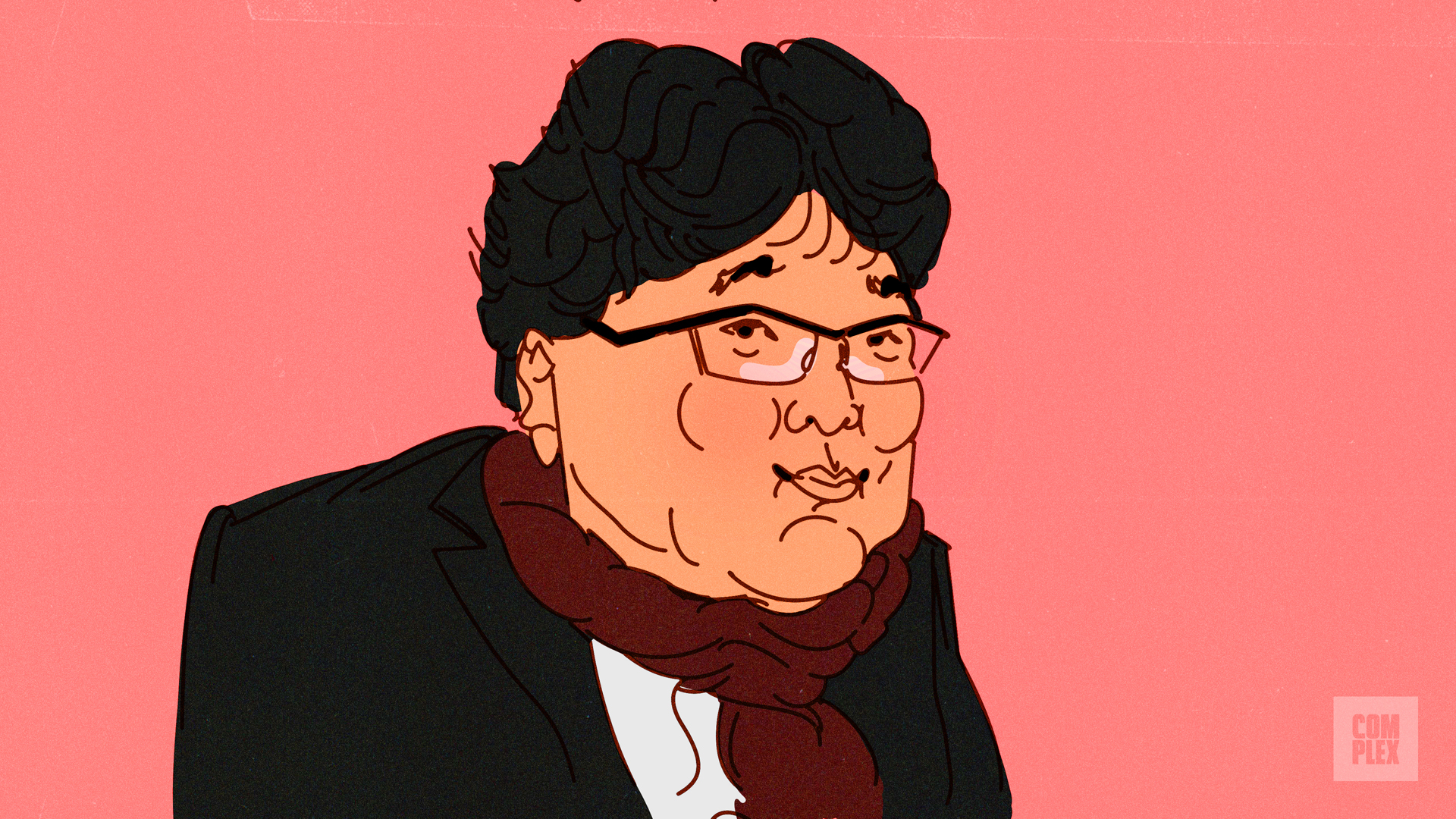
Years active: 1997-present
Notable films: Snowpiercer, Okja, Parasite
For the longest time, South Korean filmmakers were not considered household names in Hollywood. But not knowing who Bong Joon-ho is in 2020 might indicate you’re living under a rock—maybe a metaphorical landscape rock (that’s a little Parasite joke for you). On Oscar night this year, the 50-year-old director made history by sweeping four wins for his tour de force, Parasite; they were all first-time nominations and wins for his home country. Though he’s only just been getting Academy attention, Bong has been considered one of the masters of the Korean new wave for the past 20 years.
Any of his films is a good starting point for the Bong binge, from his startling realist crime dramas (Memories of Murder, Mother) to his fantasy action thrillers (The Host, Okja). It was Bong’s 2013 feature Snowpiercer that made him a more visible auteur in the western world (due to his star-studded cast of Chris Evans, Tilda Swinton, and Ed Harris), but the stars truly aligned when he went back to an all-Korean cast for his class warfare film Parasite. Both those films, as well as Bong’s others, share a common theme that has become notable for the filmmaker: the people versus the man narrative. That interest is a reflection of South Korea’s uniquely rapid economic boom and an homage to the director’s involvement with activism as a student. In Bong’s worlds, the poor revolt against the rich, the urbanites clash with disgruntled citizens of rural areas, and unassuming young girls take on corporate corruption. —Kristen Yoonsoo Kim
Yorgos Lanthimos
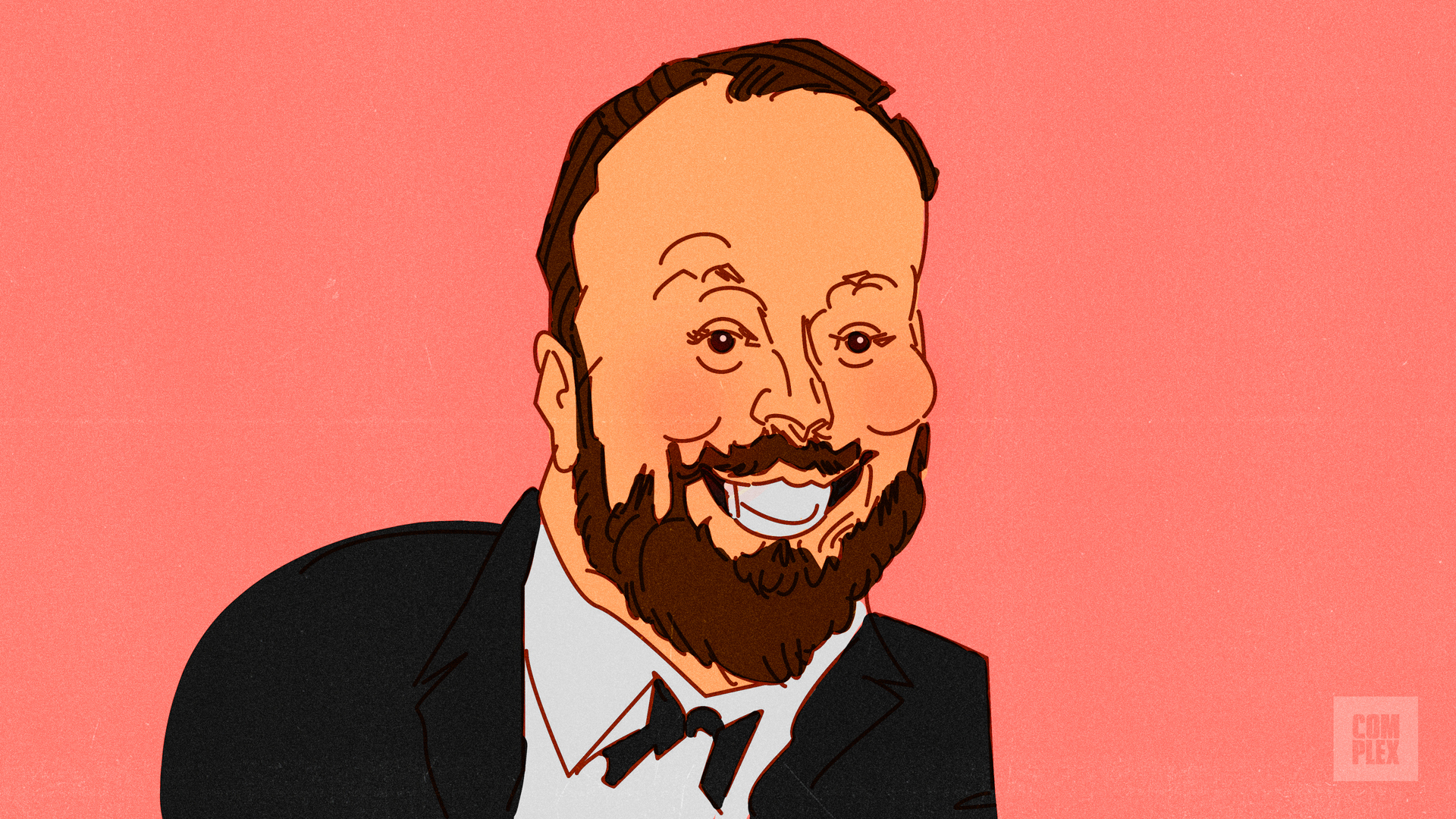
Years active: 2001-present
Notable films: The Lobster, The Killing of a Sacred Deer, The Favourite
Exactly what popped into my mind the first time I saw a Yorgos Lanthimos film? “This guy’s psycho.” Followed immediately by: “More please!” That’s because, in this current age of bland directors and indistinct movies, Yorgos is among a rare few whose idiosyncratic work is immediately identifiable. Our favorite directors smatter their films with fingerprints that signify their specific, unique style. For Yorgos Lanthimos, the most prominent of these fingerprints are the stories themselves. Playing like fucked up fairytales for adults, he discards the confines of social and scientific reality in order to magnify the underlying lesson. The Lobster is a perfect example. Taking place in a world where adults have 45 days to find a romantic partner or suffer the consequence of being turned into an animal, he examines love and relationships in our modern time to both hilarious, and alarming effect. His stories have the quality of feeling completely original—they’re the product of his twisted imagination and couldn’t exist in any similar form from anyone else.
Even in The Killing of a Sacred Deer, perhaps his most down to earth story about a young man who seeks revenge on a surgeon for the death of his father, the smaller facets still scream Yorgos (i.e Colin Farrell arguing about pubes with Nicole Kidman) The dark-humor is a vehicle to examine the deeper desire behind pruning ourselves to perfection until we lose our very humanity; it could not and would not be done this way by any other director. The Favourite, a Victorian love triangle uses BBC-level accuracies to transform powdered wigs into clown makeup and underline the absurdity of gender roles.
Yorgos Lanthimos’ catalog stands as a shining example of why style doesn’t mean lack of substance, nor is voice limited to the words on the page. Hopefully the industry takes note. Until then, at least we know one crazy-good director who will keep us entertained. —Nate Houston
Spike Lee
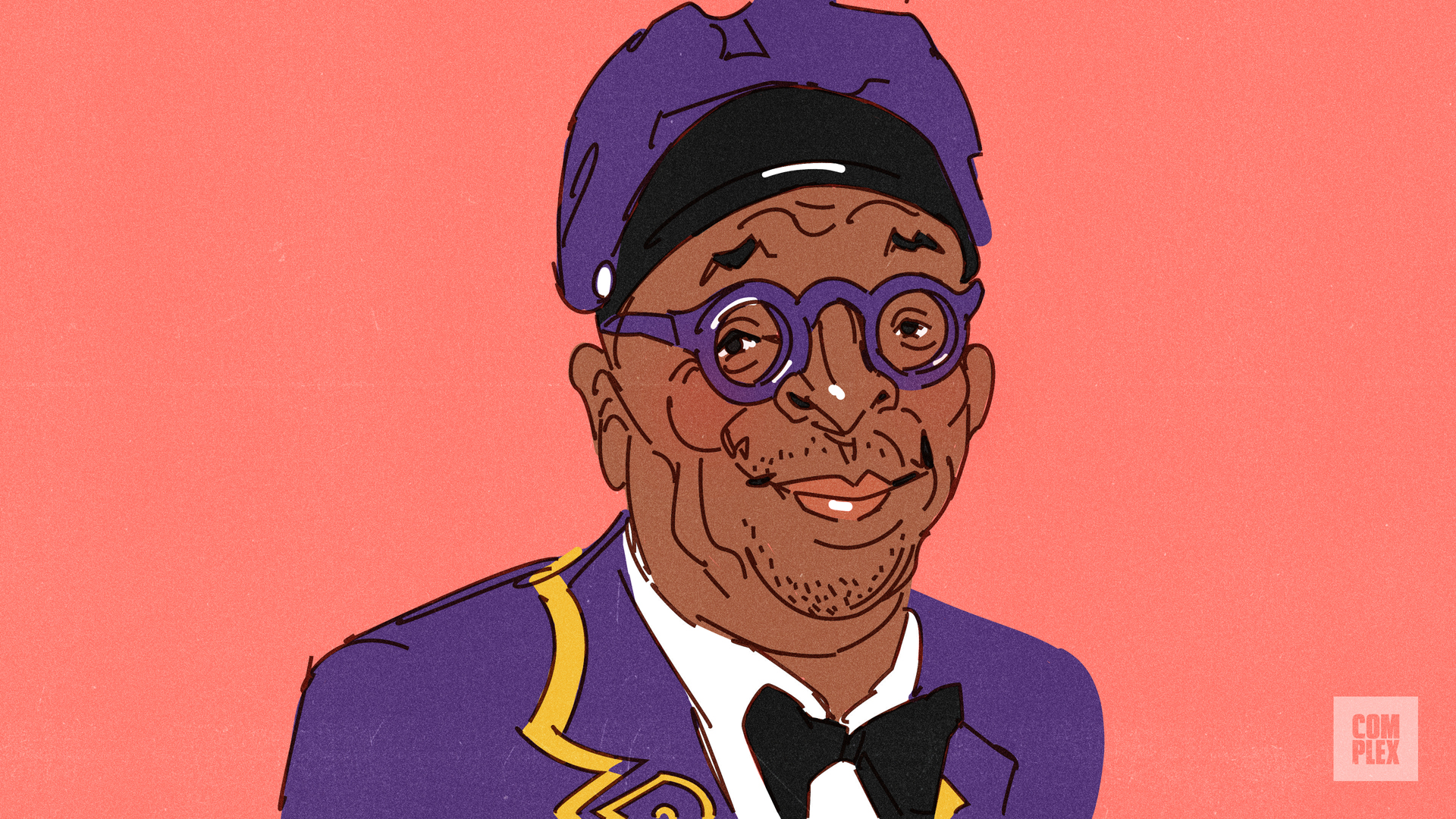
Years active: 1977-present
Notable films: If God Is Willing and da Creek Don't Rise, Pass Over, BlacKkKlansman
Spike Lee’s stock has fallen and risen countless times in the three decades since Do The Right Thing made every Spike Lee joint a must-see event regardless if it’s deemed a success or a failure. In the last five years alone, he’s misfired with 2015’s Chi-Raq, a divisive all-star satire that addressed Chicago gang violence in the context of a sex comedy, and then came back better than ever with 2018’s BlacKkKlansman. The true story of Ron Stallworth, a police officer who infiltrated and exposed a Colorado chapter of the KKK in the late ‘70s, inspired Spike Lee’s most commercially successful film since 2006’s Inside Man, and his best since 2002’s 25th Hour. It also earned him an Oscar for Best Adapted Screenplay, and nominations for Best Picture and Best Director, and made a movie star out of John David Washington, the son of longtime Lee collaborator Denzel Washington.
In the past decade alone, Spike Lee has kept his plate full with a diverse array of projects including a rollicking 2013 remake of the classic South Korean action movie Oldboy, his first horror film (2014’s Da Sweet Blood of Jesus), documentaries about Michael Jackson and post-Katrina New Orleans, and two seasons of a Netflix reboot of his 1986 breakthrough She’s Gotta Have It. But perhaps his best recent project that flew under the radar was Pass Over. A stage play by playwright Antoinette Nwandu that creatively riffs on Waiting For Godot, captured with kinetic movement by Lee’s cameras, which occasionally linger on faces in the audience, Pass Over was released with little fanfare in 2018. But as much as any of his recent work, it crystallizes Spike Lee’s gifts for treating dialogue like music and seeing modern America as the sad and hysterical tragicomedy that it is. —Al Shipley
Christopher Nolan

Years active: 1989-present
Notable films: Inception, The Dark Knight Rises, Dunkirk
Once a director goes into the world of franchise filmmaking, particularly as successfully as Christopher Nolan did with his Dark Knight trilogy, they rarely go back—at best, they fall into the old “one for them, one for me” cycle. But if Nolan has proven anything in the past decade, it’s that he can keep a big audience interested in big ideas, with or without caped crusaders and supervillains on-screen. And after wrapping up his Batman period with 2013’s overstuffed but memorable The Dark Knight Rises, he seems more invested than ever in telling original stories.
The heady concepts and novel narrative structures that Nolan made his name on with earlier films like Memento and The Prestige were successfully scaled up to the level of a summer tentpole movie with 2010’s Inception. And though Nolan stumbled with 2014’s sad astronaut opus Interstellar, his first film that seemed to crumple a little under the weight of its own ambition, he rebounded with perhaps his best work to date, 2017’s Dunkirk.
At a relatively tight 106 minutes, Dunkirk was nearly an hour shorter than Nolan’s last few features—surprising, given that other A-list directors have often gone maximalist with epic three-hour war movies. By zeroing in on one key moment in World War II—the 1940 Dunkirk evacuation—and telling the story on the land, in the sea and in the air with relatively little dialogue, Nolan showed his command of the fundamentals of filmmaking, his ability to tell a gripping story without clever bells and whistles. But with the time travel movie Tenet due out later this year, it’s clear that Christopher Nolan isn’t finished with high concept sci-fi. —Al Shipley
Safdie brothers
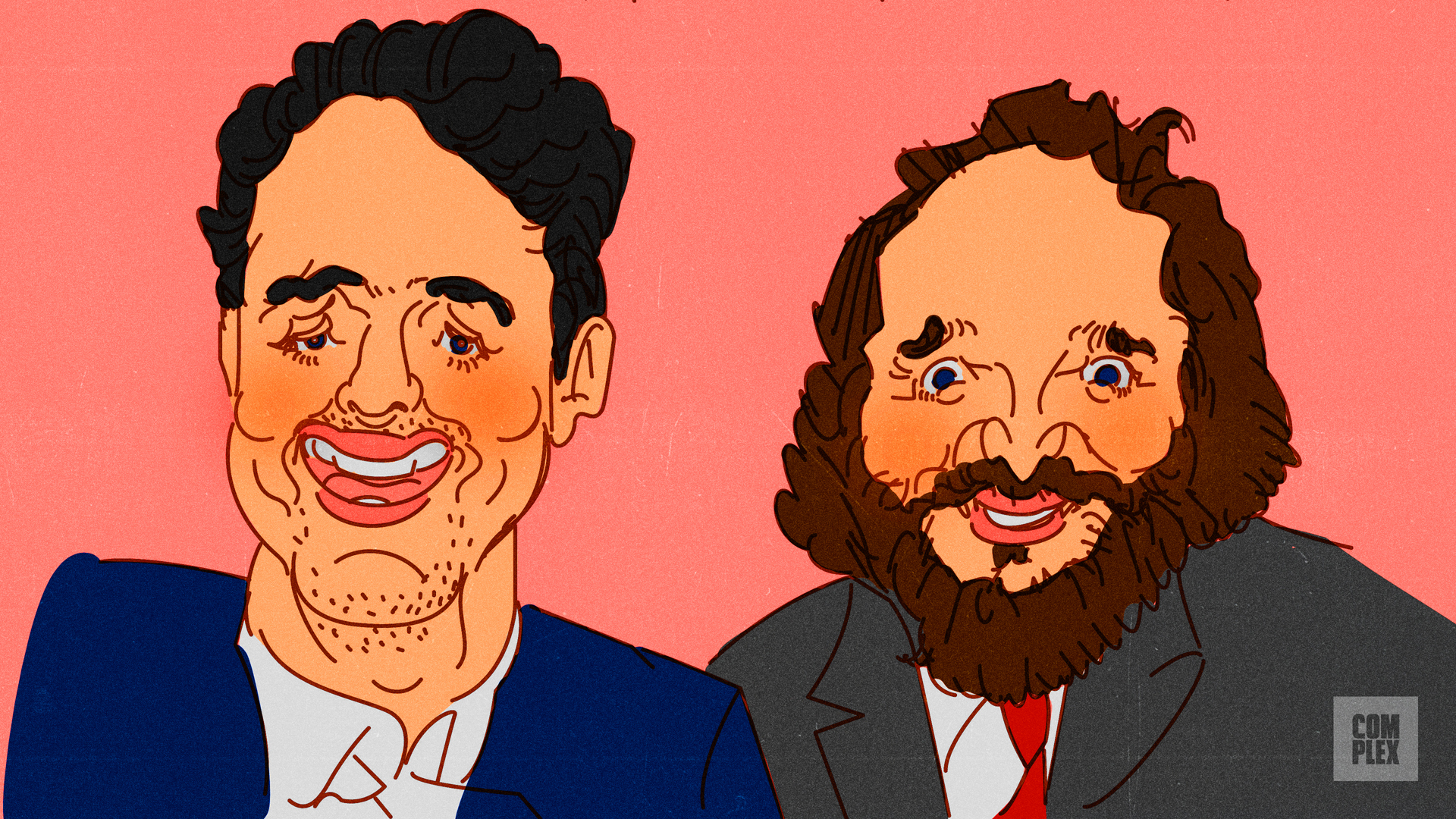
Years active: 2007-present
Notable films: Heaven Knows What, Good Time, Uncut Gems
New York is over, and as its pre-COVID time ran down, Josh and Benny Safdie made some of the final work capturing the city as it once was. America is over, too, but for the purposes of this text New York is the center of everything—this, transplants to the city and homegrown lifers can agree on. The brothers Safdie were born in the ‘80s, Manhattan-and-Queens rugrats—their parents divorced—who into adulthood continue to treat the city like a sandbox to shape and wreck. Across scripted shorts and features, including Daddy Longlegs (2009), Heaven Knows What (2015), Good Time (2017) and Uncut Gems (2019), and one documentary, Lenny Cooke (2013), they’ve passionately depicted an uncompromising and ugly-beautiful New York, a cluttered Midtown petri dish of 21st-century anxiety and precarity. In one, a father drugs his two young sons in order to cover a surprise shift at the Upper West Side theater where he works as a projectionist. In another, two heroin addicts sift stolen mail for valuable gift cards while affluent UWS dog shit rains down on them. A man dyed temporarily red after a botched robbery argues with the manager for more time in a Domino’s restroom in Queens while his handicapped brother tries to clean his face and eyes with toilet bowl water. A father and gambling addict drags his trash out to the street outside his Long Island home after a tense Passover dinner; his brother-in-law is threatening his life over money owed. The Safdies make love stories.
Consider the credit sequence of Heaven Knows What, a four-minute-long take in which the protagonist, Harley (Arielle Holmes, a first-time actor and the author of the memoir the screenplay is adapted from), navigates the hospital where she’s been admitted after attempting suicide. There’s no diegetic sound, just the stomach-burbling electronic score, and there’s only conflict, no explanation or insight, as Harley gets into confrontation after confrontation before she’s carried off like a child by a brolic orderly; a woman with a face unlike the faces you see in other movies taunts and laughs as Harley is whisked away. It’s tense, even though the camerawork is graceful; it’s also weirdly peaceful, after the sudden gory horror of the suicide attempt. It’s a moment to breathe, in an unlikely place—and an opportunity to breathe in an unlikely place.
In the Safdies’ cinema of unlikely places it isn’t ironic cruelty that real love persists. The father in Daddy Longlegs loves the children he parents poorly. Harley loves her terrible boyfriend. In Good Time, Connie loves his brother Nick in a way that renders him stupid and merciless—it’s their saddest movie. Throughout Uncut Gems you expect Howard to forsake or betray Julia (or vice versa) but they refuse to stop loving each other. It’s simply ridiculous.
After this is over New York will not be the same. But in the films of the Safdies, we’ll have one of the most potent time capsules of the manic hustler’s energy that animated its frayed pockets and crannies before March 2020. —Ross Scarano
Martin Scorsese
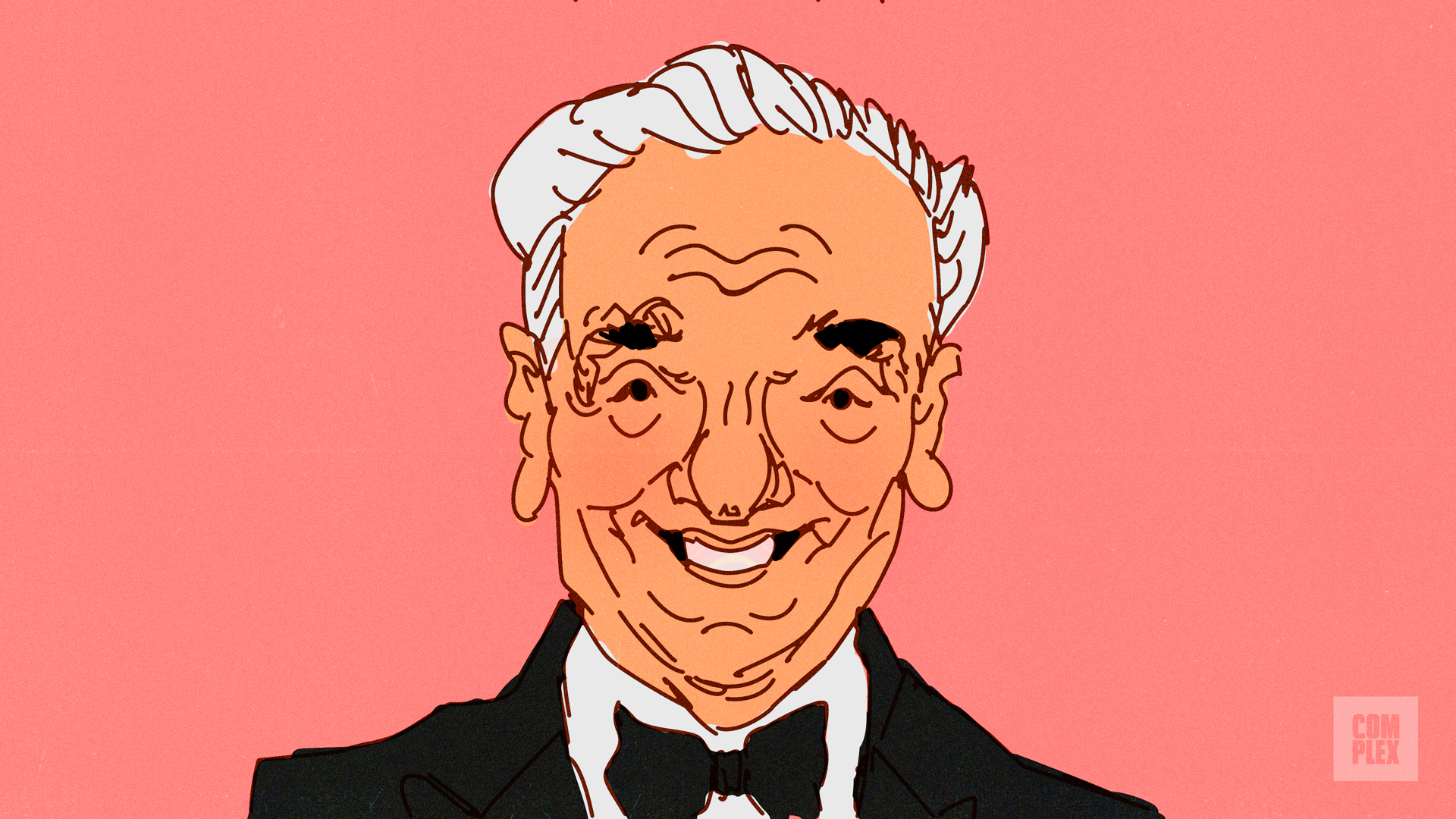
Years active: 1963-present
Notable films: Shutter Island, The Wolf of Wall Street, The Irishman
Mortality is on Marty’s mind. At 77, he has a healthy awareness of his own—mortality and legacy are the chief concerns in his latest opus, The Irishman, but before they were driving factors in his work they were, in retrospect, the driving force behind his work. This list isn’t about legacy, it’s about the here and now, and Scorsese kicked the decade off eager to not rest on his. Far from content to rest on his invincible filmography and a recent long-deserved Oscar win with mailed-in busy work, Scorsese spent the last 10 years throwing new challenges at himself, flexing his muscles in the areas where they were least defined. A cerebral thriller. A period piece about Jesuit priests. He made a kids movie!
Even if the mainstream didn’t come along for every stop on the journey, the acclaim never wavered. For that matter, wooing the R-rated crowd eager to revel in his specific brand of hedonism proved to be light work. He gave notorious stockbroker Jordan Belfort the Henry Hill treatment in a tour de force that so accurately depicted Belfort’s lifestyle, the film still incites debates over whether it glorifies his behavior or just faithfully documents it to this day. But what is agreed on is it’s a modern classic, one that introduced Scorsese’s singular auteurist talents to a new generation of moviegoer, while drawing a line back to the stylistic flourishes of his ‘90s films for those of us who grew up on Casino and Goodfellas.
"Relevance" is hardly an important barometer for discussing the best film directors out, but in the case of Martin Scorsese, who is 12 years the senior of the next-oldest person on this list, it must be noted. Because while we all unanimously cheered for Bong's Oscar wins and rued the total exclusion of snubbed auteurs-in-the-making like Josh and Benny Safdie, The Irishman deserved every nomination it got and some that it didn't. Five decades into his career, a new Scorsese film is still a genuine capital-e Event unless he's too busy indulging himself on a passion project to care (looking at you, Silence).
And after decades of experimentation, when he returned to the genre that made him a generations-spanning household name (see: Alexa Demie obsessing over Ginger while watching Casino on her iPad in Euphoria) it wasn't to retread on his most familiar ground. Instead, he deconstructed a genre he helped mythologize so forcefully he might've effectively put a moratorium on the mob movie going forward. In any creative field, the biggest legends don’t adhere to constructs like peaks and primes. Over the last few years, Scorsese has proven time and again, you can’t close the door on him just yet. —Frazier Tharpe
Steven Soderbergh
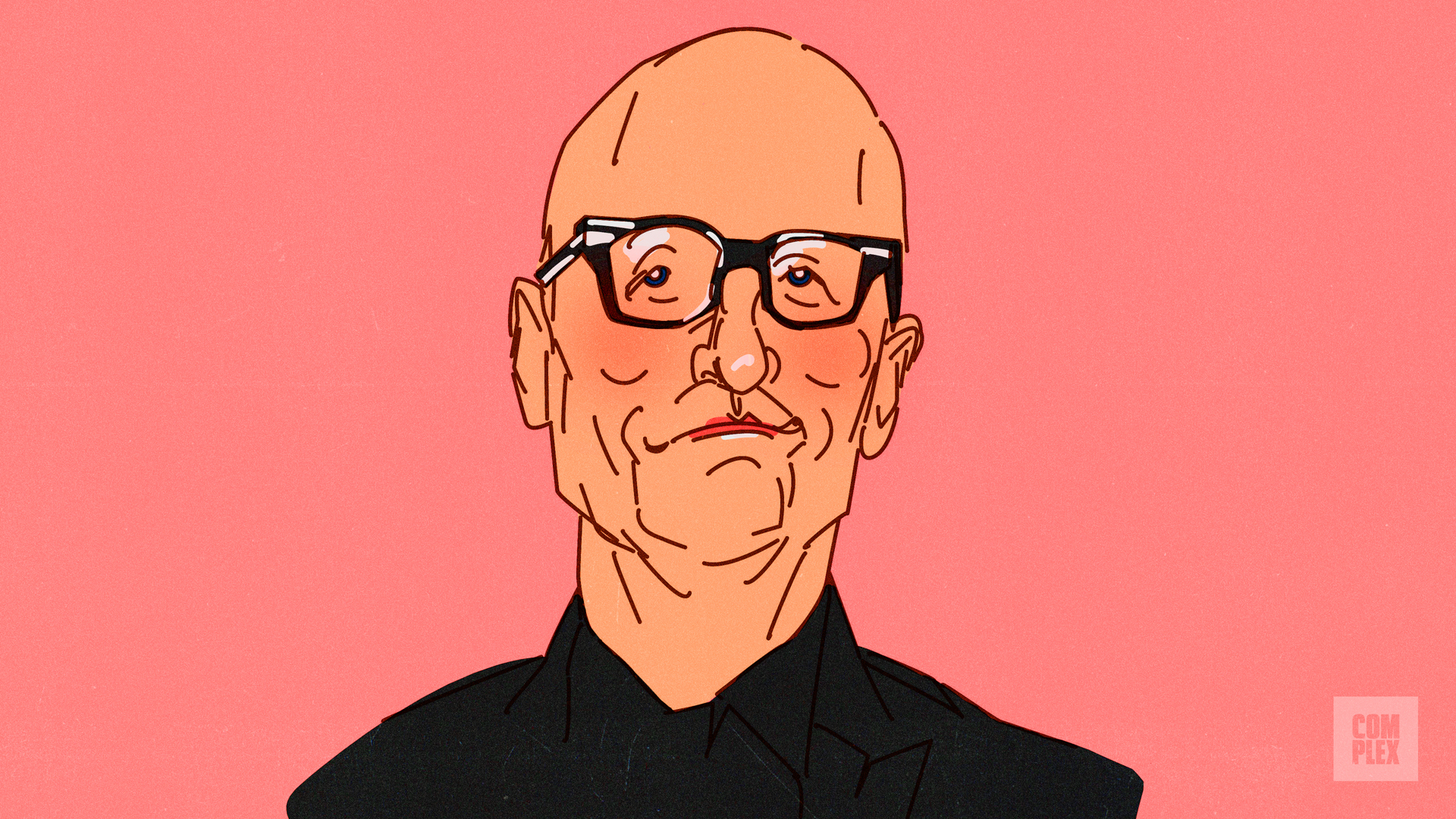
Years active: 1981-present
Notable films: Magic Mike, Logan Lucky, Unsane, High Flying Bird
It feels extremely odd to say a director as prolific as Steven Soderbergh might be underrated, and yet, here we are. Here’s a quick roundup of everything the director has done in the intervening years since Ocean’s 13, The Girlfriend Experience, The Informant!, Contagion (more on that in a bit), Haywire, Magic Mike, Side Effects, Behind the Candelabra, Logan Lucky, Unsane, High Flying Bird, and The Laundromat.
The two most recognizable films out of the eleven listed are arguably The Girlfriend Experience and Magic Mike (starring Sasha Grey and Channing Tatumm respectively). But look take a look at some of the actors involved in those movies—Matt Damon, Rooney Mara, Adam Driver, Jude Law, Antonio Banderas, Andre Holland, and Meryl Streep to name a few—and it might shock you to know they were in a Soderbergh project. Hell, Logan Lucky had James Bond in it for Christ’s sake and no one saw it!
Since the end of the Ocean’s movies, the prolific auteur has become more of a scientist than a director, fully entering into an experimental phase. Whether it’s tinkering with conventional ways of filming a movie (see Unsane and High Flying Bird’s iPhone cinematography) or embracing new distribution models (as seen with Logan Lucky), Soderbergh seems keen on throwing a number of different things to the wall in an attempt to see what truly sticks. Perhaps the shift away from big studio projects—Magic Mike was the last thing he did within the confines of a “traditional” system—has caused him to fall off the radar of traditional moviegoers. Nevertheless, Soderbergh seems content to linger around the edges, waiting for people to discover him when the time is right; look at how many people started to watch—or rewatch—Contagion the second coronavirus really began to hit.
We shouldn’t be content with waiting for him to pop out of the lab though. Sure, experimentation leads to wondrous results—but each little iteration on the way to a breakthrough is just as valuable as the final discovery. In writing this, I couldn’t help but think of an oft-repeated phrase from NBA writer Kevin O’Connor, imploring fans to not take LeBron James for granted. Of course, the idea there is that we’re bearing witness to someone doing great things. We’d be keen to remember this for Soderbergh, too. —William Goodman
Quentin Tarantino
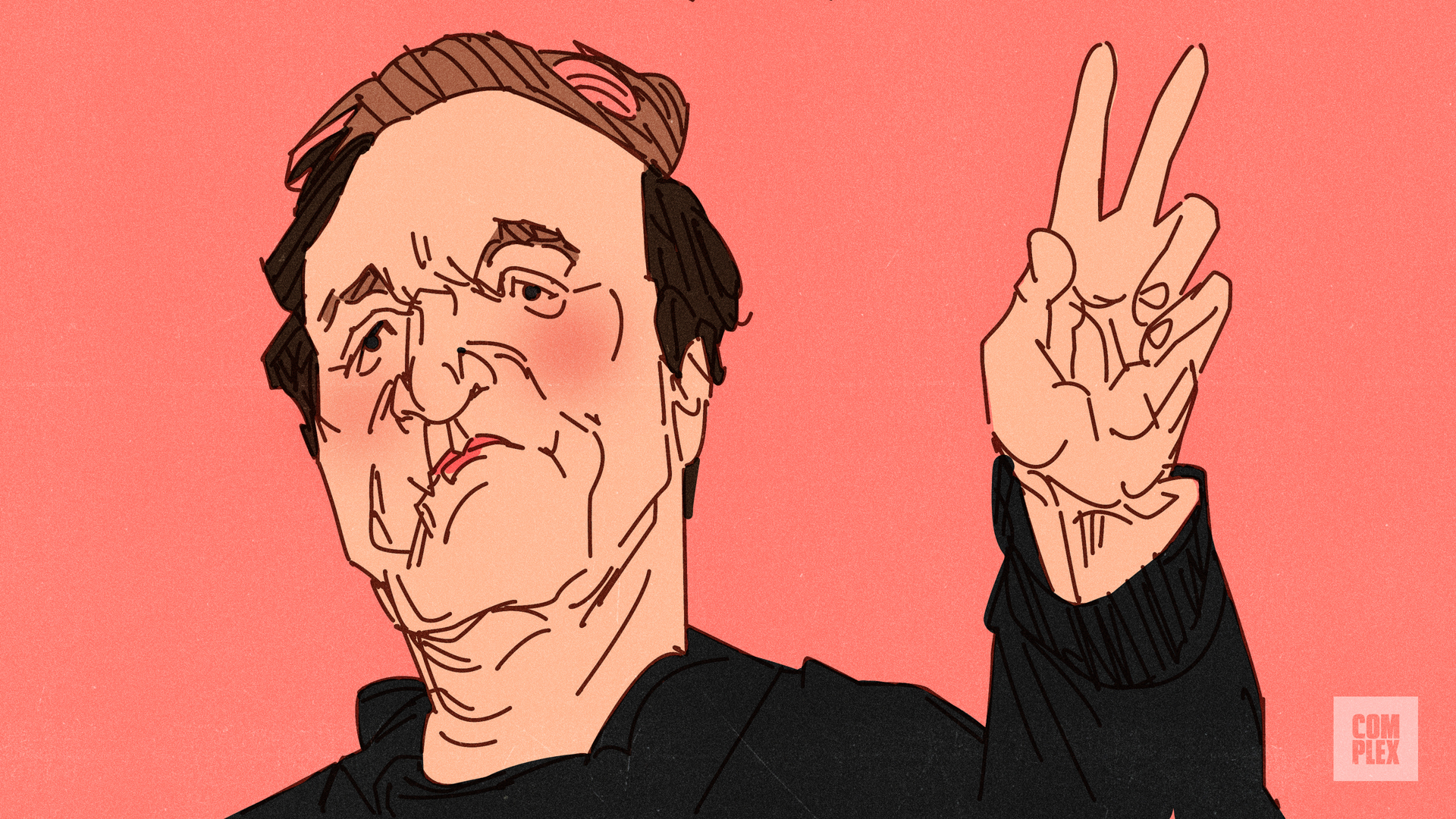
Years active: 1987-present
Notable films: Django Unchained, The Hateful Eight, Once Upon a Time...in Hollywood
With Tarantino, more often than not it's about the words first and foremost. Out of his nine films, he has three Oscar nominations for Best Director to his four for Original Screenplay. But 2020 was the first time he’s been up for Screenplay, Director and Best Picture, fittingly so. Once Upon a Time...in Hollywood isn’t his best film (that honor goes to Jackie Brown, personally, and Pulp Fiction as far as this publication’s democracy is concerned) but it is his masterwork, the grand finale of his filmography and the summation of every theme, trope and fixation he’s explored before, writ large.
And for once, Quentin’s eye shines harder than his pen. Through his lens, the film is less period piece than it is a time machine. Sweeping shots of 1960s Sunset Boulevard transport us to the Golden Age era he grew up adoring, to say nothing of the way he builds dread during Cliff’s visit to Spahn ranch, or the fluid camera reset when Rick flubs a take on set of his pilot. If the story has deficiencies, they never amount to much—Hollywood is Tarantino’s most sentimental film (following on the heels of his ugliest) and each shot is a different paragraph of his love letter.
It’s almost too perfect then, that this is his finale, a meta but expected turn from someone who’s always tightly controlled the narrative of his own mythology. Over the past year, Tarantino’s hedged commitments on what his tenth (and, as the legend goes, final) film will be but what he has said is it will be his denouement. Once Upon a Time...in Hollywood was the grand climax, a moment long in the making that somehow managed to live up to the burden of expectation. If Quentin is going out, it’s at the top of his game. —Frazier Tharpe
Denis Villeneuve
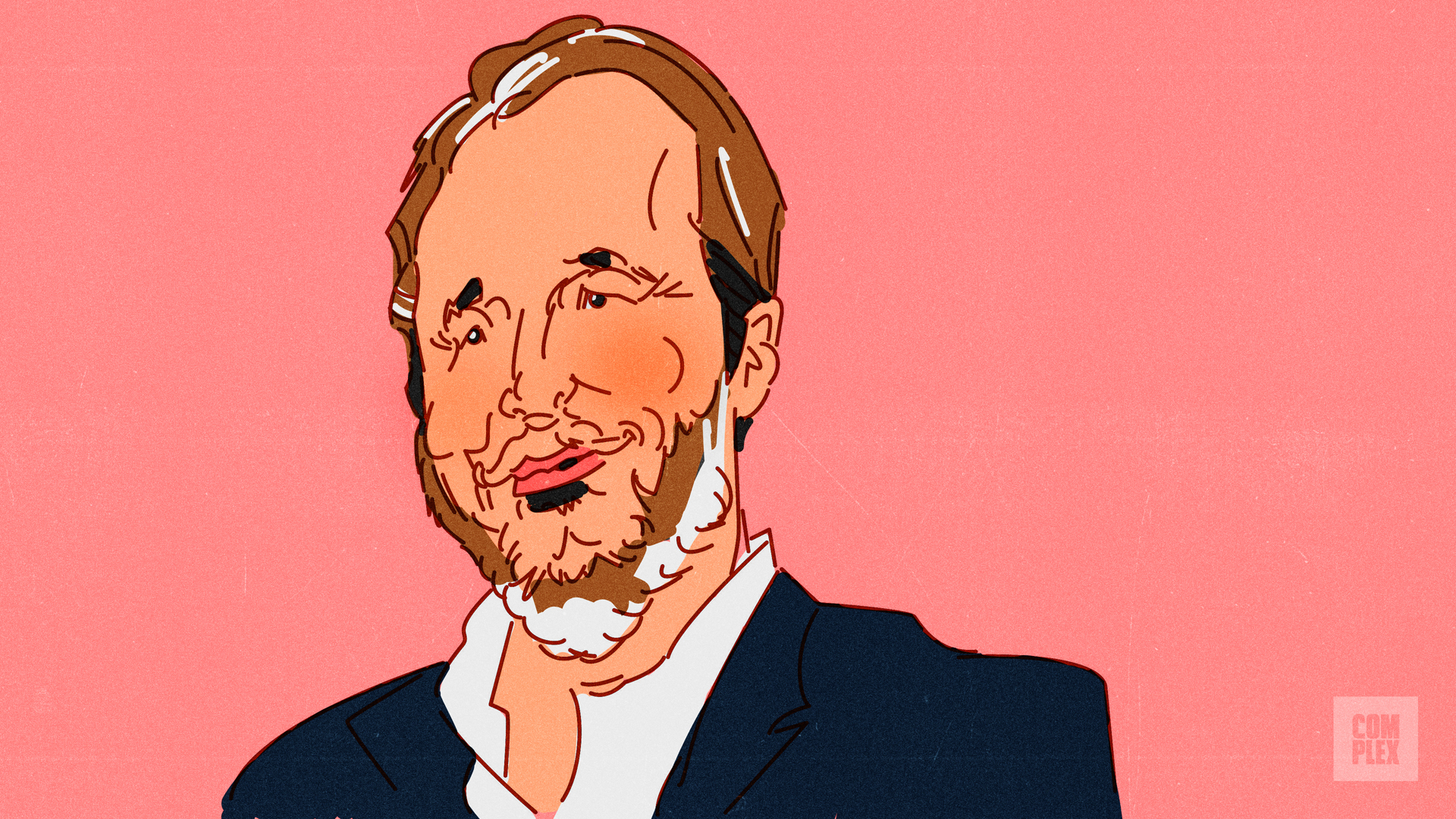
Years active: 1990-present
Notable films: Sicario, Arrival, Blade Runner 2049
Consistency. It’s something that’s hard enough to achieve on an assembly line, but in terms of a creative field, near impossible. That is of course unless you’re talking about Denis Villeneuve, the current record holder for the longest unbroken winning streak of any director.
Going back to 2010 if you’d be forgiven for not knowing who Villeneuve was. The Canadian-born filmmaker had only just managed to garner real attention from the industry with his Arabic/French language drama Incendies. He did, however, have one big fan in actor Jake Gyllenhaal, who jumped at the chance to team up. Managing to secure a humble backing in part due to Gyllenhaal’s involvement, Denis kicked off production in 2012 on Enemy, a moody psych-thriller about a man who meets his doppelganger only to have it take a dark turn. Punching far above its weight class in both story and visuals, Enemy made such an impression with execs that it earned both Gyllenhaal and Villeneuve their next project before even receiving a public release.
Rumored to have been more than quadruple Enemy’s budget, Prisoners (2013) saw Villeneuve reteam with Gyllenhaal as well as adding megastar Hugh Jackman. If Villeneuve flinched it doesn’t show. Telling the tale of a father’s struggle to find his kidnapped daughter and the cop investigating, Prisoners delivers one of the most emotionally powerful thrillers of the past decade, as well as wringing a career-best performance out of Jackman. Villeneuve could’ve continued making mid-budget films and coasted. Instead, he set his sights even higher, managing two more consecutive home runs with expansive narco-drama Sicario (2015) which netted more than double its cost, and Arrival (2016), a complex extra-terrestrial sci-fi that earned him his first Oscar nod for best director, as well as proved his ability to handle critically-acclaimed big-budget fare.
In 2017 no movie was slated to be bigger than a sequel to the 1982 masterpiece, Blade Runner. The project required a multi-faceted director capable of adding to a complex pre-existing world, managing a production scale topping 150-million dollars, handling the star power of Ryan Gosling, Jared Leto, and Harrison Ford, as well as filling the shoes of all-time great Ridley Scott. The final cut Dennis Villeneuve delivered did all that and more. Cradling the mythos of the original without ever being handicapped by it (i.e. Star Wars), he dives deeper into the world he was entrusted with, building on the raw humanity of robots to create a modern classic all his own.
With a remake of Dune, a largely considered (and once proven) unadaptable literary opus set to premiere in late 2020, Villeneuve will put his unbeaten record at risk once again with the biggest gamble of his career. If you haven’t learned by now, the smart bet is it’ll be a hit. —Nate Houston
Jia Zhangke

Years active: 1995-present
Notable films: A Touch of Sin, Mountains May Depart, Ash Is Purest White
Bursting onto the international film scene in 2013 with the crime drama A Touch of Sin, Jia tells four independent stories all centered around run-ins with violence. Dahai (Jiang Wu) is a poor villager in provincial China whose fervent belief in communism is shattered by officials who’d rather buy Maseratis than help the starving. Zhou San (Wang Baoqiang) is introduced to us on a scooter as three teenagers with hatchets try to rob him. What they don’t know is that he has a gun and is equally desperate. Xiao Yu’s (Zhao Tao) been afforded a middle-class life in a small city but is seen as lesser because she’s a woman. Xiao Hui (Luo Lanshan), a migrant worker, is condemned to poverty because of his darker complexion and southern Chinese accent. Using his signature documentary-like style, Jia shows us a depth of character exploration often attempted but rarely achieved even by the best directors. The larger picture never pays sacrifice to the personal though, instead brilliantly juxtaposing the two, Zhangke highlights the social, economic, cultural, and even linguistic multi-fare that his home of nearly 1.5 billion people has to offer.
While large ensembles and multitudes of stories are commonplace in Zhangke films, two elements have remained constant throughout his works—the usage of geography and time expanse to reflect personal journeys. Mountains May Depart (2015), about a woman and her family’s development split into three stories, and Ash Is Purest White (2018), about a woman who falls in love with a mobster and the consequences that ensue, both span decades and a vast array of landscapes. Often captured with no accompanying dialogue, China’s abundant geographical variances are cast members in Jia’s films unto their own. The destruction of nature, tradition, and lives all for the sake of profit and progress in modern China plays parallel to the character’s trials, often struggling to find their place in this rapidly changing land. With everything currently happening in the global ecosystem, Jia’s works elicit an increasingly powerful response even from a nonnative Chinese viewer such as myself. It’s through these haunting visuals and the examination of humanity’s pervasive toxicity Zhangke can reach an audience unobstructed by racial or linguistic confines.
Jia’s epics may sound intimidating in topic and scope but given a little patience, you’re always rewarded with an entertaining film. Watch enough and who knows, you may even end up with a new favorite director. —Nate Houston
SHARE THIS STORY
